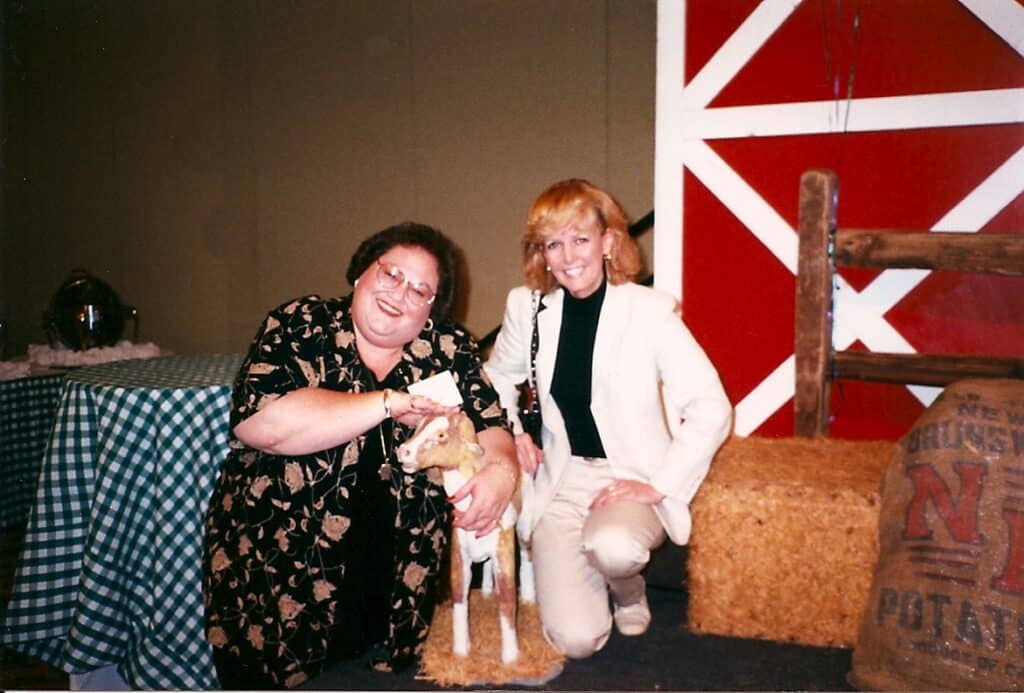Remembering Our Veterans: Renée Paper

This past week we honored our veterans for their service to our country. This past week I also received a message from someone in the von Willebrand disease community, surprised and saddened that no one seems to remember one of our great veterans—Renée Paper, RN. Her date of passing was November 7, 2007, at age 49. So young, but she made a huge impact. She was a pioneer in VWD care for all. She should be and needs to be remembered. So much of the care we receive today for VWD we owe to Renée. This includes my book on VWD, A Guide to Living with von Willebrand Disease, which I originally wrote with Renée.
Renée had von Willbrand disease, and was an emergency room nurse in Nevada. She traveled and lectured frequently. She was a powerhouse when lecturing. I saw her absolutely command a room full of nurses and doctors with her photographic memory, brilliant knowledge of VWD and her deep-seated passion. She spoke with authority, compassion and a call to arms, for everyone to find unidentified VWD patients, get them the treatment they deserve and need, to stop the silent suffering of women. She herself had had a hysterectomy in her early 20s, rendering her unable to have children, when doctors did not correctly diagnose her with VWD and sought to end her uncontrollable bleeding. I think in part her burning dedication and fiery style of lecturing was fueled by the embers of what was left of her ability to control her life, to have children. She didn’t want this to happen to any other woman.

If you never heard a Renée Paper speech, you missed some great speeches. One of my favorite lines by her was when she blamed the medical community for misdiagnosing women who had VWD as being “hysterical,” or “imagining” their illnesses. “You know why this happens?” she would bark out. “Because men dominate the medical scene! And you know why they don’t take us seriously? Because men don’t have uteri!” Leave it to Renée to always use the correct Latin plural of uterus.
She traveled with me to Puerto Rico and the Dominican Republic on lecturing tours together, and she and I presented in places as close as Connecticut and far away as Australia. She was brilliant; she was fun-loving. She could be irreverent yet compassionate. She loved animals, and one of her favorite gifts to her friends was to send a photo of herself each New Year’s with a different animal from different parts of the world: kissing a dolphin in the Caribbean; draping a boa constrictor around her neck in Mexico; nuzzling an alligator in New Orleans; atop a camel in the Canary Islands. Renée knew how to grab life by the horns and tame it, and she wanted others to do that, too, regardless of whether they had a disorder or disability.

Renée walked the talk: her message was always to get educated about VWD. Don’t let it keep you from enjoying life. Play the hand you were dealt. (Yes, she was from the Las Vegas area!) Play it and win.
Renée was a visionary leader. As an emergency room nurse in Nevada, she saw the need for a patient-based hemophilia organization and an HTC. Nevada had neither when she first lived there. Typical of Renée, she saw the need and figured out how to meet it. She founded Nevada’s first patient organization and HTC, both of which continue to this day. In fact, November 1 is Renée Paper Day in Nevada! How many people can claim such an honor?
So we remember an inspiring and action-oriented leader as one of our veterans. As if she knew the clock was ticking, she made incredible accomplishments that continue to benefit patients to this day. A legacy like that is the mark of a true leader.

